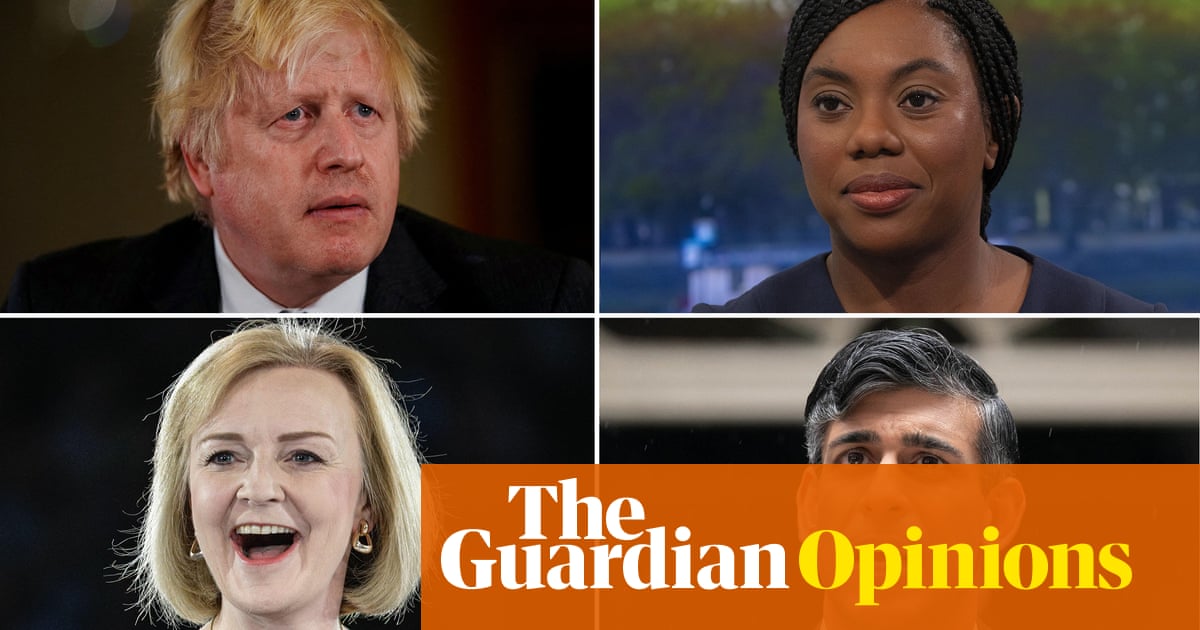It takes real effort to kill a political party that has been around for nearly 200 years and is the most successful in Britain’s history. But at the very least, this version of the Conservative party is dead. To quote the famousMonty Python dead parrot sketch, it has ceased to be. It is an ex-party. Inlast week’s local elections, of the 16 councils it was defending, the Conservative party lost control of every one of them. It won just one of the six mayoralty contests. The BBC’s projected national vote share for the Conservative partywas just 15%. It’s another record low for a party that has spent the last several years achieving record-low vote shares in national elections. This is a pathetic performance for a party often described as the natural party of government.
And it was all so predictable. I’ve lost count of the articles I’ve written for the Guardian warning that the party’s “Reform-lite” strategy of trying to out-Reform Reform would lead to failure and electoral disaster.Back in July 2024I described it as an existential moment that required change. “Do or die,” as I put it. The party chose not to change – with fatal electoral consequences.
Unlike in the past, it’s not as simple as waiting for the pendulum to swing back towards the Conservative party. There is no pendulum. Arguably, there is no such thing as a core voter any more. Those days of predictable votes in predictable places are gone. In today’s Britain, voters act the way they do as consumers. If they vote for a party that fails to deliver on its promises, then they simply choose a different one the next time an election comes around. And why not? Why should political failure be rewarded? Yet this losing version of the Conservative party, with its blinkered, ideological, culture-war preoccupations and entitlement syndrome, has failed to grasp this crucial change.
What voters see is a Conservative party with no authentic sense of purpose or mission, and a Labour government that seems not have thought realistically about what its tax and spend agenda would be until after its landslide general election win last July. It’s no wonder voters have cast around for alternative political parties. Voters supported a Labour party selling “change”. Now, in the absence of seeing a sufficiently ambitious plan to deliver change on the ground, many are attracted to a party titled Reform.
There are those who would castigate these Reform voters’ political choices, but they would be wrong. Instead, we should understand just how fed up millions of people are with the status quo in this country. These voters feel they’ve heard it all before from the two main parties. Grand promises, rhetoric – but then nothing changes.
Is this the end of two-party politics? The Conservative party had better hope so. Otherwise it has an even bigger problem, because for a party with no distinct, authentic purpose any more, our two party politics – driven by a first past the post system – means theConservativesare squeezed out of contention almost everywhere: in the south and south-west England by a LabourLiberal Democrat or Lib Dem-Reform run-off; in the north by a Labour-Reform run-off; in the wider UK by the presence of independent parties.
In a sense it’s a healthy challenge for the Conservative party now, as it is for Labour. Both parties need to up their game. But the Labour party at least has the platform of government to show it can deliver. For the Conservatives, the challenge is existential in nature. This version of the Conservative party is finished as a political force in our country. For the first time, even a change of course may now not be enough to improve its fortunes. The party’s joyride down its political cul-de-sac has not just been a flash in the pan. It has been a long one – over the best part of a decade. The local election results prove beyond doubt that it has now reached a political dead end.
In a very literal sense. Political nature has taken its course. The party has attempted to be a “mini-me” version ofReform UK, and unsurprisingly Reform voters prefer the real thing. And this strategy’s consequential alienation of Conservative-leaning centre-ground voters has seen them head off to either the Lib Dems or Labour, or to the Green party. The party has no winning majority in any age group of voters other than those over 70. This is no basis for a successful electoral strategy for the longer term.
Perhaps the Faragian Reform-party bubble, akin to the Johnsonian Conservative-party bubble, will also spectacularly burst when its powerful but simplistic political rhetoric is confronted with the more complex problems of the real world. Perhaps the populist revolution that both parties have fuelled will eat both its political children, not just the one. Yet the driver behind it – inequality of opportunity and the unacceptability of Britain’s endemically weak social mobility – will remain. Future policy solutions will still be required.
But for now, all that the present generation of Conservative leadership can do is to own up to their abject failure. They should have the humility to admit that their strategy has been catastrophically wrong. It’s quite a political epitaph: to have essentially killed the Conservative party. But in creating this version of it, they may well have done just that.
Justine Greening was the Conservative MP for Putney from 2005 to 2019
